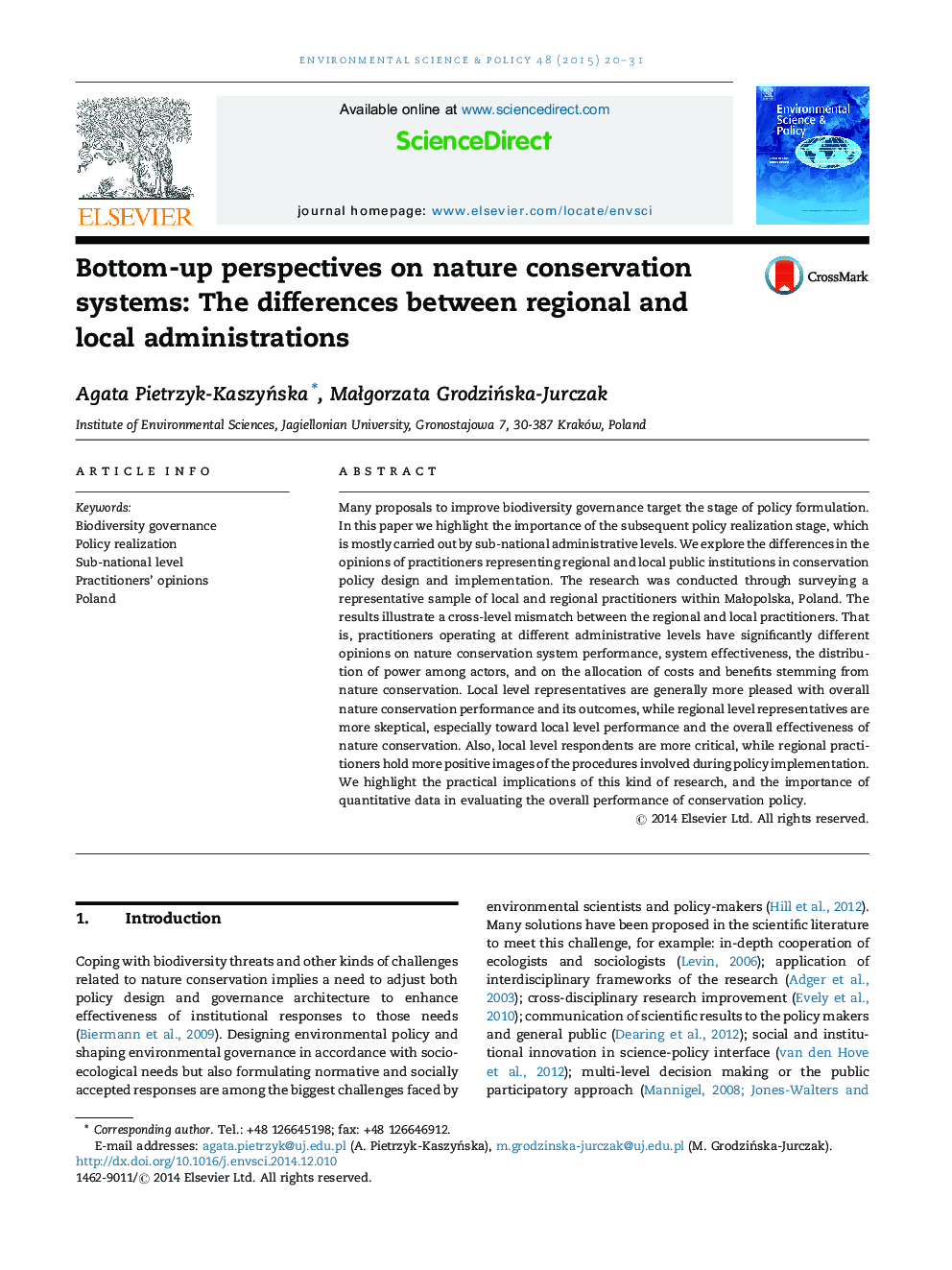| Article ID | Journal | Published Year | Pages | File Type |
|---|---|---|---|---|
| 7467461 | Environmental Science & Policy | 2015 | 12 Pages |
Abstract
Many proposals to improve biodiversity governance target the stage of policy formulation. In this paper we highlight the importance of the subsequent policy realization stage, which is mostly carried out by sub-national administrative levels. We explore the differences in the opinions of practitioners representing regional and local public institutions in conservation policy design and implementation. The research was conducted through surveying a representative sample of local and regional practitioners within MaÅopolska, Poland. The results illustrate a cross-level mismatch between the regional and local practitioners. That is, practitioners operating at different administrative levels have significantly different opinions on nature conservation system performance, system effectiveness, the distribution of power among actors, and on the allocation of costs and benefits stemming from nature conservation. Local level representatives are generally more pleased with overall nature conservation performance and its outcomes, while regional level representatives are more skeptical, especially toward local level performance and the overall effectiveness of nature conservation. Also, local level respondents are more critical, while regional practitioners hold more positive images of the procedures involved during policy implementation. We highlight the practical implications of this kind of research, and the importance of quantitative data in evaluating the overall performance of conservation policy.
Keywords
Related Topics
Physical Sciences and Engineering
Energy
Renewable Energy, Sustainability and the Environment
Authors
Agata Pietrzyk-KaszyÅska, MaÅgorzata GrodziÅska-Jurczak,
